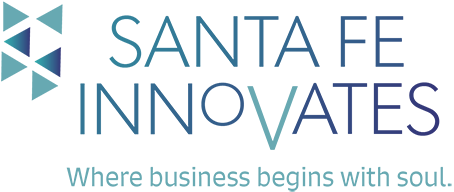In 2000, I had a good job at IBM. I managed worldwide channel marketing for the Tivoli division, working with global systems integrators like Deloitte, distributors like Ingram Micro, and resellers across all geographies. It was a fun and challenging role, but it was a fascinating time. I have never worked at a place where there seemed to be two dozen going away parties every Friday. Something exciting was happening in the tech world – Web 1.0.
Many talented people left the big tech companies to join exciting high-growth tech startups. It was difficult not to be distracted by what was happening. I remember one of my former team members coming back to the office bragging about being a millionaire. The problem was it was all paper, waiting to vest.

Regardless, I left to join one of those tech startups and participate in Web 1.0. Our company was in the application service provider – ASP – industry. In today’s Web 2.0 world, it is software as a service – SaaS – or cloud-based applications. The work was energizing and, yes, game-changing. Salesforce started at the same time, and we know their story well. Our story had its ups and downs, but we survived the dot com boom and bust. Long after I left, our company was purchased by NetSuite. A good outcome.
I tell this story because we don’t know how new technology unfolds and eventually changes the industry. Transformational changes can be erratic at times, yet some kernels always survive and thrive.
Shifting from Future of Work to Future Of
Before the pandemic, I hosted a Future of Work Meetup in Santa Fe. A good group gathered to explore different aspects of our changing workplace. As we meet again for the first time in two years, I dropped “work” from the Meetup, calling it just “Future Of.” Many changes are happening in our world, and we need to be open to exploring all the different aspects unfolding – whether in work, leadership, technology, politics, etc. My preamble to our first Future Of meeting.
Web3: Transformational change?
We don’t know how Web3 will unfold, but we need to be curious to explore. At my last startup, we focused on healthcare interoperability, and several years ago, blockchain technology was emerging. Certain aspects of it were intriguing. Whether it was going to take off sooner or later did not matter. What mattered was we needed to explore the technology and determine how to talk about it and, maybe eventually, use it.
Today, other aspects have grown, including crypto and DAOs (decentralized autonomous organizations). There are many active conversations about Web3, which is a good thing. We need to be curious.
I am excited to host Christian Lemp, co-creator of Diamond DAO. Christian is an experienced leader in data analytics and complex systems. Maybe like me in 2000, he left his big company job to start a new venture centered on Web3. You can learn more about our event and Christian, and I hope you join us on April 21.
Web3 resources
If you want to read or listen before our event, highlighted below are several resources. An excellent place to begin is with Christian and then expand from there.
Christian Lemp
- Visit Diamond DAO
- Subscribe to the Emergent Outcomes Newsletter
- Follow Christian on Twitter: @c_lemp
New York Times
A well-done series exploring all aspects of the next generation of the web.
- The latecomer’s guide to crypto. By Kevin Roose.
- What are NFTs? By Kevin Roose.
- What is Web3? By Kevin Roose.
- What are DAOs? By Kevin Roose.
- What is DeFi? By Kevin Roose.
Ezra Klein
- A viral case against crypto, explored with Dan Olson, the creator of a two-hour-YouTube video, “Line Goes Up,” a critique of crypto
- A crypto optimist meets a crypto skeptic with Katie Haun, a general partner at the venture firm A16Z, also known as Andreessen-Horowitz.
Other perspectives on DAOs
- Fast Company: What are decentralized autonomous organizations—and why should you care?
- Wired: So, you want to start a DAO
- Ethereum: Decentralized autonomous organizations (DAOs)
- Wikipedia: The DAO
Many other podcasts are available to explore this new technology, including The Ownership Economy and Unchained. Search your favorite podcast platform and discover different perspectives on this industry shift.
